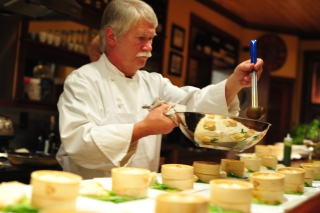
Start Your Engines but Keep Your Foot on the Brake
09 August 2021Creating a new post-pandemic normal that doesn’t feel normal.
By Paul Sorgule, MS, AAC
Well, here we are 18 months into the virus that changed everything and classes are about to begin. After last year when most programs were either fully or partially virtual, many are anxious to return to normal, whatever that means. Ahhhh... in-person classes, fully engaged culinary labs, on-campus restaurants reopening, and internships hopefully activated once again. Seems perfect, doesn’t it? Oh, but hold on – things are not that normal, and it is possible they may never be pre-pandemic normal again. I’m not trying to be a killjoy, just realistic. So, is there a silver lining?
One thing is certain, there are lessons to be learned for challenges festering for years and lessons that shocked everyone in March of 2020. Here is my take on the lessons that every program director should take to heart:
Lesson one: You never know, but you should be prepared.
Every program was faced with an overnight requirement to convert to virtual learning. Some jumped in with vigor and rose to the occasion, while others limped along trying to stay a day ahead. Every program should invest in scenario planning and have an emergency handbook on how to adapt overnight.
Lesson two: The restaurant industry is in crisis.
There have been challenges in the past but never like this. Restaurants are challenged to be profitable; the labor situation is unmanageable; the supply chain is taxed and unable to adjust to the swings in business volume; and customers are even less forgiving than before. Schools need to work together with restaurants in their community to become part of the solution.
Lesson three: The thrill is gone.
Thoughts of a career in the kitchen were exciting, dynamic, and very enticing just a decade ago but not so much today. The post-pandemic era will create an even greater challenge for culinary school admissions departments. Everyone knows the restaurant field is inflexible, stingy with compensation, stressful, and not a dependable employer. Convincing young people to enter the profession now is very difficult. Schools will need to assess everything including what we offer, how we offer, how we prepare people for more predictable and lucrative careers, how to make programs more user-friendly, and how to provide all of this at a much more affordable cost. Change is necessary: get ready to sharpen your pencils.
Lesson four: Embrace technology.
One of the most obvious solutions (at least partially) is to adopt more technology into our programs. Efficiency is the key to cost effectiveness in the restaurant and classroom. Time for faculty and administrators to go back to school.
Lesson five: Think differently.
It may just be time to push aside much of what we felt was right and begin to look beyond the careers in food that we were comfortable with. The restaurant business will change, will become more efficient, and will require fewer employees in the future. The industry will embrace better wages and benefits but may not be looking for the skillset that we have built into our past curriculum. There will be several other careers in food that will rise. Careers that will require a totally different skillset and as a result offer better compensation and work/life balance. Schools should research what is needed and build programs that service the industry of the future.
So, what will your faculty meetings look like this fall? What will be on your agenda? Will your task list look the same as it did in 2019? We should use this time as an opportunity to adjust, realign, and prepare ourselves and our students for a brave new world of food. Don’t pass up this chance to be ready for whatever comes your way in the coming years.
PLAN BETTER – TRAIN HARDER
Paul Sorgule, MS, AAC, president of Harvest America Ventures, a mobile restaurant incubator based in Saranac Lake, N.Y., is the former vice president of New England Culinary Institute and a former dean at Paul Smith’s College. Contact him at This email address is being protected from spambots. You need JavaScript enabled to view it..
